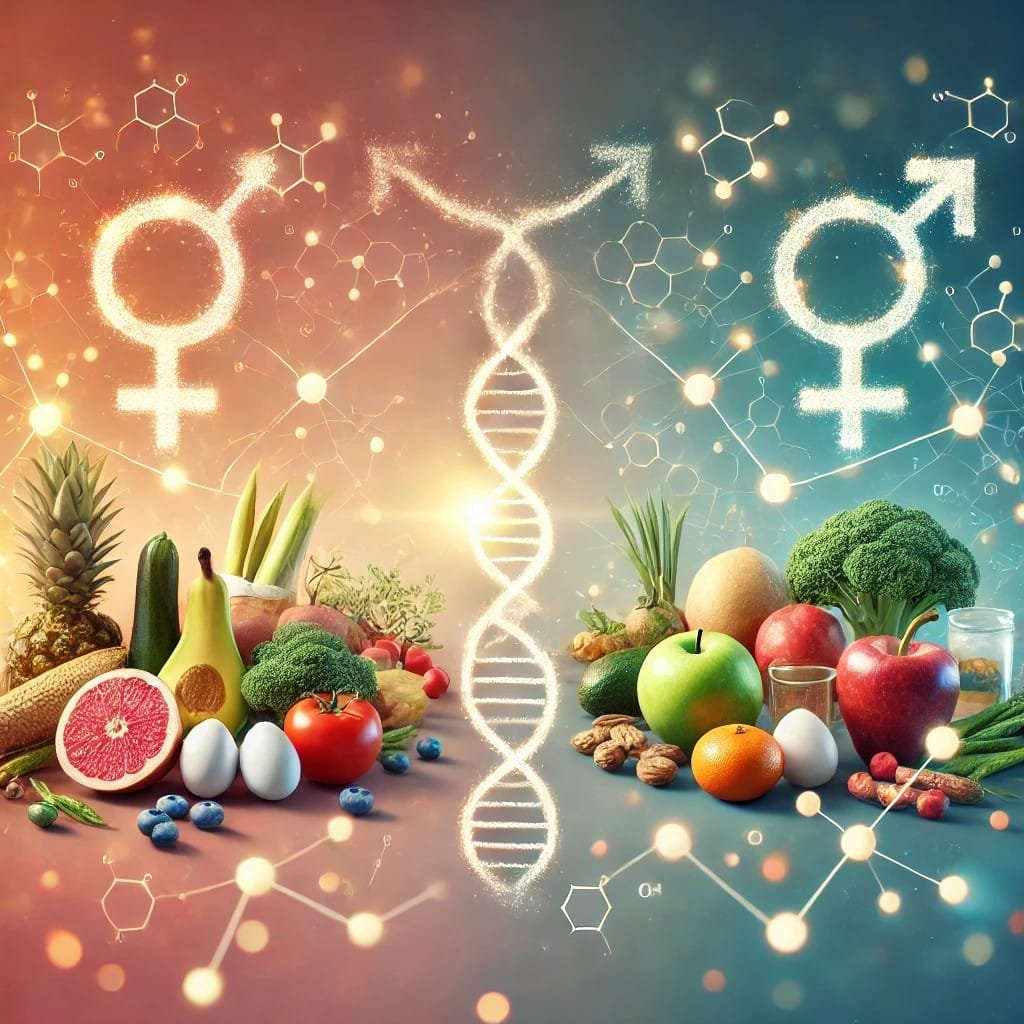Table of Contents
Hormonal Impact On Nutrition
Introduction Of Hormones:
Hormones are produced by glands in our body. It performs various functions in our body. Hormones are chemical messengers. Which join our blood and convey the message to different parts through the same blood.
Hormones control various bodily processes through our blood. They perform all the essential functions of our body like optimal development metabolism reproductive system mood appetite and energy distribution and stress. Hormones make decisions in our body about how and when to use nutrients such as carbohydrates, proteins and fats. Nutrients that enter the body when we eat food. Hormones decide whether to store these nutrients in the form of body energy or as fat in the body. Hormones perform all these functions according to the needs of the body.
In this article we will learn what are the different types of hormones and what is the relationship between different hormones and nutrition and how does it affect digestion? How does it absorb nutrients? And how does it affect metabolic pathways? Further, we will also learn how nutrition itself affects hormone levels.

Understanding the Major Hormones that Influence the Nutrition:
There are many types of hormones in our body. Among which there are many hormones that directly affect metabolism. Some important hormones that perform important functions in our body. They are as follows:
- Insulin Hormones:
- Glucagon Hormones
- Leptin Hormones
- Ghrelin Hormones
- Cortisol Hormones
- Thyroid Hormones
Insulin Hormones:
Insulin is an important hormone in our body, which is produced in our body by the pancreas. Insulin Controls Sugar Levels in Our Body Insulin’s job is to balance our blood sugar levels. Insulin hormones play an important role in protecting us from diseases like diabetes. When we eat sweet foods that are high in carbohydrates. So due to this, glucose is added to our blood. Insulin hormones help our body cells to absorb glucose. So that this glucose can be used as energy in the body. Insulin hormones store the energy obtained from glucose in the form of glycogen in the muscles and liver according to the needs of our body. Insulin hormones also affect the metabolism of proteins and fats.
When the amount of insulin hormones in our body is balanced, the fat tissues and muscles in the body remain healthy. And when the level of insulin hormones in our body increases, fat storage in our body starts to increase.
Glucagon Hormones:
Glucagon hormones are also produced within the pancreas. But their action is opposite to that of insulin. That is, what insulin hormones do, glucagon hormones reverse. When the amount of sugar in the blood in our body is less than the physiological requirement, then glucagon hormones start working.
These gluconeogenic hormones signal the conversion of glycogen into glucose in our liver. So that the sugar level in our blood can be balanced again. It is very important to have a balanced blood sugar level. Otherwise it can prove bad for our health. We should consume low carbohydrate foods in our daily life. Because when we consume low-carbohydrate foods, the gonad hormones in our body become more active during this time. And the body begins to break down fat for energy. Especially when you are eating.
Leptin Hormones:
Leptin hormones are hormones in our body that are produced by fat cells in our body. The function of leptin hormones is to maintain appetite and energy balance. Another important function of leptin hormones is when the amount of energy in our body is sufficient to match the body’s needs. These hormones then signal to our brain to stop eating and no longer need to eat. As the amount of fat in the body is high, the level of lipton hormones in our body also increases. As a result, you may lose your appetite. Liptin makes it harder for hormones to work when you’re obese. In the case of obesity, our brain does not properly sense the signals of liptin hormones to stop eating. This process is called lipton resistance.
Ghrelin Hormones:
Ghrelin hormones can also be called hunger hormones. Because they perform functions related to hunger. Since hunger is related to our stomach, it is obvious that ghrelin hormones are produced in our stomach. The function of ghrelin hormones is to increase the level of hunger in our body. These hormones increase the level of hunger before eating and after we eat according to the physiological need. So these hormones themselves reduce the level of hunger. It is clear from this, that by not eating on time or by skipping meals, the level of ghrelin hormone increases in our body when we are hungry, due to which we feel more hungry.
Cortisol Hormones:
The existing hormones in our body have different properties. All hormones perform different functions. Core testosterone is a stress hormone. These hormones are produced by the adrenal gland. Cortisol hormones stimulate our body’s energy sources. Which can provide energy to the body in case of stress or crisis. Stress and weight gain are possible as hormones affect nutrition. When we are under stress for a long time, it increases the level of these cortisol hormones in our body. Due to which you eat more and you are more likely to gain weight.
Thyroid Hormones:
These hormones specifically control the metabolism in our body. These hormones determine how quickly and efficiently our body uses energy. Thyroid hormones, which regulate metabolism, are produced by the glands. Metabolism is also called T3 and T4. Apart from this, these hormones also affect the production of proteins in the body and the sensitivity of other hormones. Deficiency of thyroid hormones is called hypothyroidism. Hypothyroidism can cause you to gain weight and make you feel tired.

Effects of Nutrition on Hormones:
Earlier we looked at how different hormones affect our nutrition. But do you know that nutrition also affects hormones? The food we consume in our daily routine affects both the production of hormones and the function of hormones.
Following is a brief but effective overview of it:
Ratio of Macronutrients:
First, learn how micronutrients, such as balanced amounts of carbohydrates, fats, and proteins, affect the production and function of hormones in our bodies.
Carbohydrates:
Most glycemic foods, i.e. foods with carbohydrates, quickly increase insulin and sweetness in our blood. But as time goes by, resistance to insulin in the blood starts with each passing time. Therefore, we should eat low-glycemic foods that are low in sugar and foods that are high in fiber.
Protein:
Foods that are high in protein, and foods that are low in carbohydrates. So all these foods affect the amount of Glucagon in the body. Increases the secretion of hormones.
Fats:
Foods that are high in fat, especially foods rich in omega-3 and fatty acids, reduce inflammation in our bodies. Consuming foods rich in fatty acids increases the production of various hormones such as estrogen and testosterone.

Micronutrients and Hormonal Health:
Foods rich in vitamins and minerals play an important role in the production and balance of hormones in our body.
Vitamin D:
Vitamin D helps to control the sensitivity of insulin hormones present in our body. Vitamin D also regulates reproductive hormones.
Iodine:
Consuming foods rich in iodine, such as seafood and milk, has a positive effect on thyroid hormone health.
Magnesium:
It plays an important role in improving both the sensitivity of insulin hormones and the health of the adrenal glands.
Zinc and Selenium:
It helps in the production of hormones in our body and improves health.
About Author
I’m Ayesha Iqbal, a student studying MBBS at Services Institute of Medical Sciences (SIMS) Lahore. I write about health for “GenZ Cares” because they care a lot about young people staying healthy. I do research and try new things to learn more about how to keep everyone feeling good. My articles focus on topics like nutrition, exercise, mental well-being, and ways to lead a healthier lifestyle. Through my writing, I aim to share valuable insights and practical tips that can make a positive difference in people’s lives.
Reviewed By

This article is reviewed by “Nashit Aliyan“, a certified Surgical Technologist from Government College University Faisalabad under section 2017-2021. I am 17A medical officer as well as Strategic and financial planning expert and Proficient in surgical field. Me and my team use the latest technology to perform complex surgical procedures. I recommend to “GenZ Cares” because they are really hardworking in their work and care a lot about youth to staying healthy.


1 thought on “Hormones and Nutrition: 06 hormones that perform important functions”